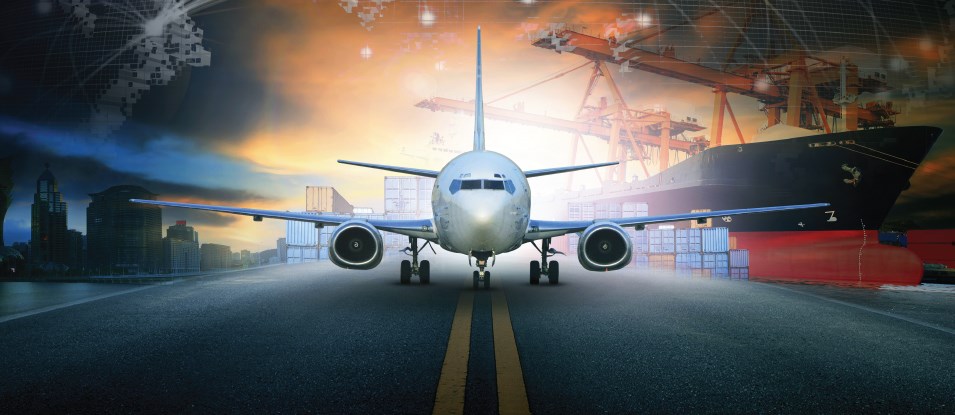As technology and globalization are breaking down barriers and shrinking our world, businesses of all kinds are expanding their reach, no longer limited by geographical boundaries. As industries such as automobile, medicine, pharmaceutical and manufacturing are growing and expanding their reach, the demand for air freight services to support these industries has also been growing. Air freight is especially important as a mode of transportation of goods for landlocked countries and faster transit. The volume of air cargo translates to 35% of world trade by value or $6 trillion, according to the International Air Transport Association (IATA).
Advantages of Air Freight
A report by the World Bank titled, “Air Freight: A Market Study with Implications for Landlocked Countries” calls out the advantages of air freight in terms of creating a competitive edge by enabling faster shipping of goods, providing diversification, and enabling quick transportation of samples, prototypes etc.
Some of its other advantages include:
Ability to Deliver Time Sensitive or Delicate Cargo
Products or raw materials or any other items where the transportation requirements are time sensitive benefit greatly from air freight services. Examples include food products or medicines that need to be transported in temperature-controlled environments; live animals; high value items; fragile goods etc. In these cases, delay in delivery or lack of adequate care while handling could lead to substantial losses. Therefore, air freight is the best mode to transport such products.
Security and Reliability
Compared to other modes of cargo, air freight offers greater reliability in terms of meeting specific timelines for delivery with fewer chances of delay. The added advantage is that the cargo is secure along with a minimal chance of damage or loss of goods while in transit. This becomes doubly important in the case of expensive goods and delicate or fragile cargo.
However, it is important to use discretion while choosing air freight as your preferred mode of transportation. Air freight is not advisable when the volume, quantity and size of the shipment is large. Also, in instances where there is no tight shipping schedule or a close deadline, shipping via sea can be a better and more cost-effective option as compared to air freight.
Features to keep in mind while choosing the Right Air Freight Carrier
While choosing the air freight carrier following factors are to be considered:
- Global Route Access
Air freight carriers need to have access across the globe via their network. The carrier should have a large distribution network covering even remote locations and countries across the world. As businesses are growing and the world is becoming a smaller place, a business should choose a freight carrier that has a large distribution network.
- Safe and Trustworthy Carrier
When choosing an air freight carrier, it is extremely important to ensure that the carrier is safe and trustworthy. As the goods transported via air freight are typically highly valuable, any damage can cause businesses huge losses in terms of money and reputation.
- Integrated Services
Before finalizing and choosing an air freight service, businesses should also take into consideration the other services they provide in order to get a comprehensive offering. For instance, the ability to provide end-to-end transit by augmenting air freight services with inland trucking service and warehouse capabilities is important. This would come in handy as businesses can get optimized costing on these allied services. In addition, it adds to the reliability since all of these services are handled by the carrier itself.
- Customs and Compliances
A good air freight carrier will have a in depth and thorough knowledge of all the documents, approvals, and fees charged by customs. This is an important factor while choosing an air freight carrier as they will well equipped to advise the business on related documentation required. The business can look to them for their support and expertise to ensure smooth and hassle-free transportation.
According to a report by Allied Market Research, the air freight business is in the midst of a transformation fueled by technology. With the emergence of new adaptable interfaces coupled with advances in cool-chain tech; Artificial Intelligence (AI), robotics and automated systems; Internet of Things (IoT); augmented reality and virtual reality, the global air freight market is projected to reach $376.8 billion by 2027, with a CAGR of 5.6%.
By all indications, we can expect air freight to become even more pervasive in the future.






